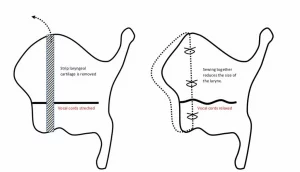To make your voice sound more natural after transitioning, you need to focus on consistency, resonance, and relaxation. The aim is for your voice to reflect who you are without sounding forced or artificial.
Voice therapy helps you refine tone, inflection, and rhythm so your new voice feels comfortable and expressive in all settings.
Why Does My Voice Still Sound Forced After Transition?
Your voice may sound forced because you’re consciously maintaining a new pitch rather than letting it flow naturally. Overuse of throat tension or breath pressure can also make the voice sound unnatural or strained.
As your muscles adapt, the new voice becomes easier to sustain. Practising relaxation and resonance exercises helps reduce effort and smooth out your sound.
For Voice Therapists In London, Contact Nick Hamilton Today on 020 7034 6053
What Role Does Resonance Play in Achieving a Natural Sound?
Resonance affects how full, bright, or deep your voice sounds. Feminine voices typically resonate in the head or mask area, while masculine voices resonate in the chest. Finding a balance between these areas helps create a tone that feels authentic and effortless.
A therapist guides you to the resonance pattern that best matches your identity and comfort level, ensuring the result sounds natural rather than exaggerated.
How Can I Build Confidence Using My New Voice After Transition?
Confidence comes from consistent practice in real-life situations. Use your new voice when talking to friends, making calls, or reading aloud. Each experience reinforces your comfort and authenticity.
A 2021 study found that 76% of participants reported higher communication confidence after completing voice therapy, demonstrating how effective guided training can be.
When Should I Seek Additional Help with My Voice?
If your voice still feels strained, unstable, or unnatural after several months, it may be time for additional guidance. A voice specialist can fine-tune your technique and address any physical tension or habits that limit progress.
Follow-up sessions ensure your voice continues to feel and sound natural as it settles into everyday use.
What Is the Key to a Natural-Sounding Voice After Transition?
The key is patience and integration — practising enough that your new voice feels like second nature. With time, you’ll stop thinking about technique and simply speak as yourself.
For expert help in achieving a natural, confident voice after transitioning, contact Nick Hamilton today on 020 7034 6053 for tailored voice therapy and professional guidance.
See Also:




